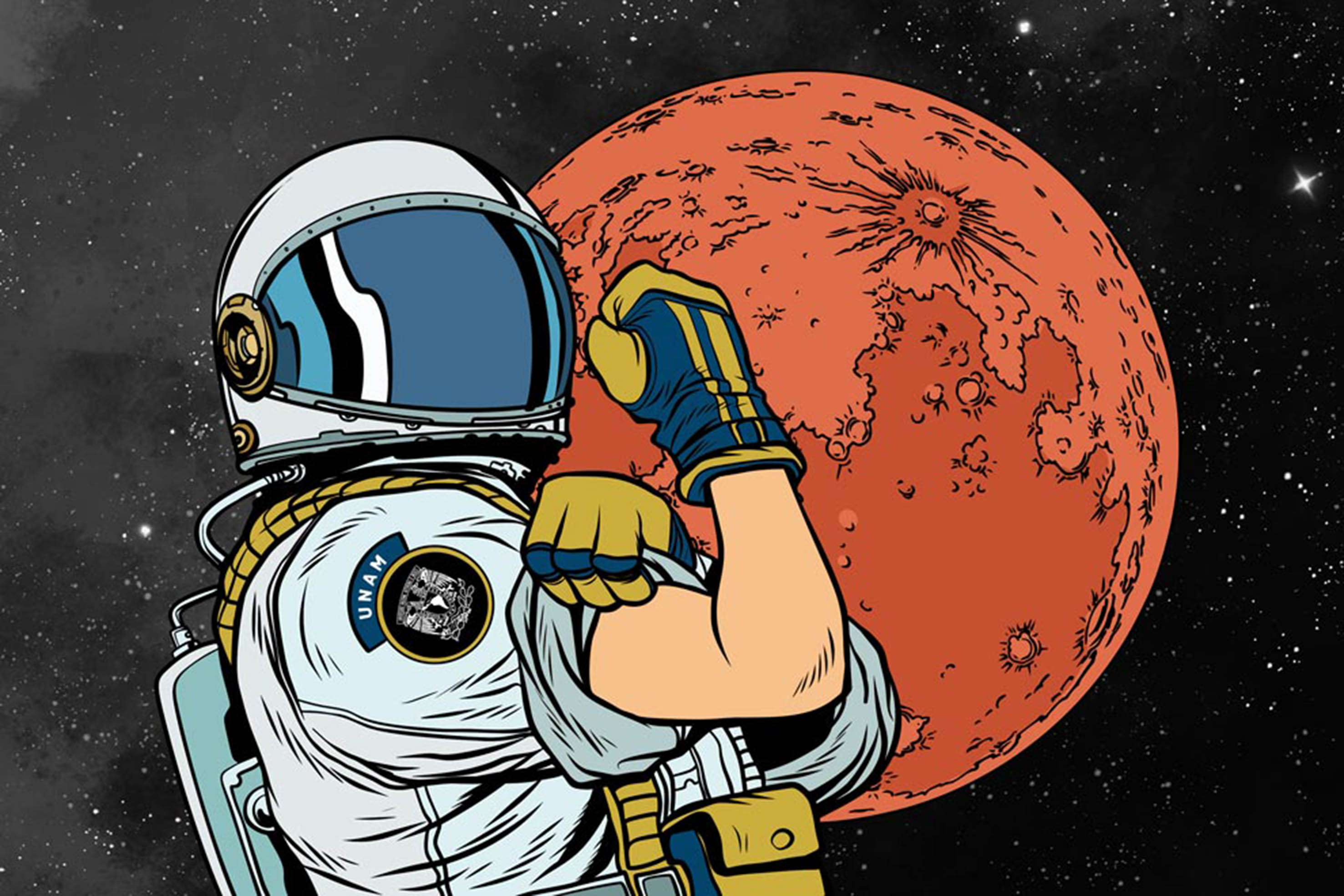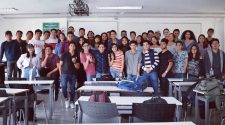Danton Iván Bazaldua Morquecho, is a student at the Faculty of Engineering (FI) of UNAM, and will command the Latin American crew in the eighth analogous mission to Mars, which will be carried out at the University of North Dakota, United States. The Telecommunications Engineering student was appointed head of this space company for his experience in other similar simulations.
This is the story:
With the aim of developing and testing technology designed for real missions to the red planet, such as spacesuits and human factors that will be crucial for the search and success of the conquest of Mars, from October 2 to 16, this project will be carried out in the University of North Dakota, in facilities funded by the National Aeronautics and Space Administration, through its Established Program to Stimulate Competitive Research, known as NASA EPSCoR.
“As Commander, my role is to examine and experiment with developments of my own, the University of North Dakota and NASA, as well as some of the crew's own projects. We will be four crew members from Latin America: Atila Meszaros (Peru), David Mateus (Colombia) and Marcos Bruno (Argentina). We all have experience in analogous simulations, but this one, unlike others, is completely scientific, with complex objectives, experiments and extremely rigorous schedules ”, explained Bazaldua Morquecho.
Space Eagle and Condor
It will be the first time that a crew entirely of Latin Americans will participate in the American university, he stressed. It is an achievement derived from the interest of Pablo Gabriel de León, an Argentine aerospace engineer who works with NASA, dedicated to the development of special suits for the following missions to the Moon and Mars, with which they will work.
"The main space agencies are interested in these issues, and Latin America has already begun to get deeply involved for academic, strategic and even military purposes," he said.
The important thing is not only the desire to reach Mars as an achievement of humanity, this effort entails strategic advantages, the university clarified. For example, large nations apply resources to space missions because they generate economic, political, social and national security benefits, in addition to obtaining information on the situation of their borders and even of the biodiversity of their territories.
"Currently many advances are based on space technology, and the part of exploration will come, which will be a reality in the next three decades. Our University and Mexico already participate, perhaps with academic missions and some isolated efforts, but in a few years they will be palpable, and this type of collaboration will contribute to having a greater presence as a nation ”, he stressed.
As time goes by, he concluded, technology will force us to remove resources from space that are scarce on Earth, and then we will see this work as a necessity.
Danton Bazaldua was named in 2016 one of the four emerging leaders in the space sector by the Space Generation Advisory Council, an entity of the United Nations. He made a stay at the Saint Petersburg Polytechnic, Russia, where he developed missions and communication protocols with nanosatellites. He participated in the Poland Mars Analogue Simulation 2017 (PMAS 2017) and was a Health and Prevention Officer in the MDRS LATAM II mission in 2018.












No Comment